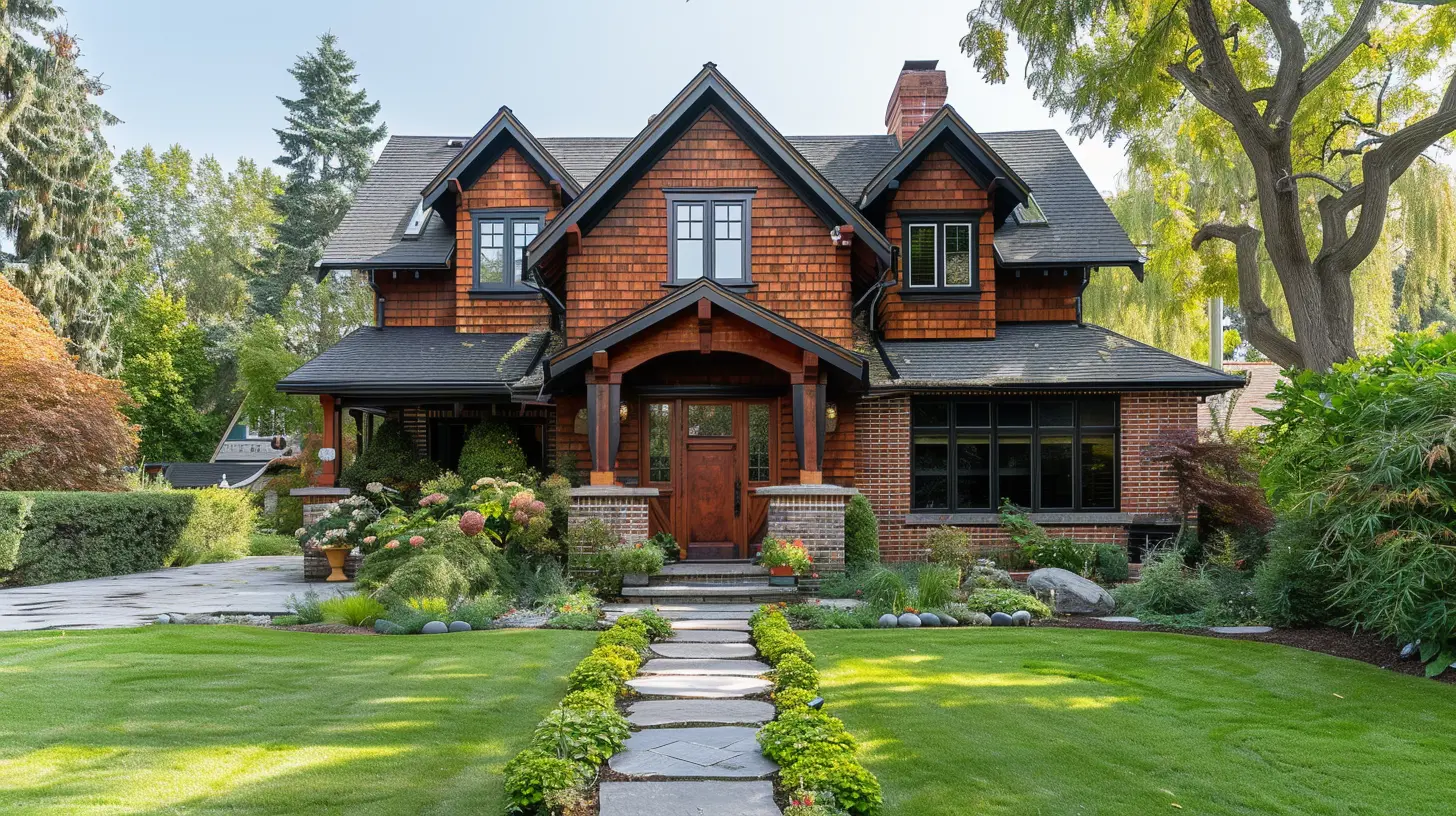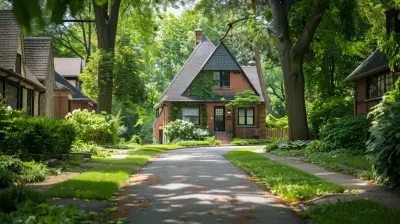How to Negotiate the Best Price on Your First Home
1 May 2025
Buying your first home is both an exciting and nerve-wracking experience. It’s a significant financial decision, and the price you negotiate can impact your finances for years to come. The good news? With the right strategy, you can secure the best possible deal without feeling like you’re leaving money on the table.
Whether you’re dealing with a seller’s market or a buyer’s market, knowing how to negotiate effectively can save you thousands of dollars. Ready to sharpen those negotiation skills? Let’s dive in.

1. Do Your Homework Before Making an Offer
Before you even think about negotiating, you need to arm yourself with information. Research the local real estate market and analyze comparable home sales in the area.- Is it a buyer’s or seller’s market? If homes are selling quickly above asking price, you may have less room to negotiate. But if listings are sitting for a while, you have more bargaining power.
- What are similar homes selling for? Look at recent sales in the neighborhood. If the asking price is way above comparable homes, you have solid grounds for negotiating a lower price.
- How long has the home been on the market? If it’s been listed for months, the seller might be more eager to negotiate.
Knowledge is power—walk into negotiations with a clear idea of what the home is worth.

2. Get Pre-Approved for a Mortgage
Sellers take pre-approved buyers more seriously. If you enter negotiations without a pre-approval, the seller may not even consider your offer.A pre-approval letter from your lender shows that you’re financially capable of closing the deal. It also strengthens your position if you’re competing against other buyers. Sellers prefer deals that are more certain, and a pre-approval gives them confidence in your ability to follow through.

3. Start with a Strong But Reasonable Offer
Lowballing the seller might seem like a good tactic, but it can backfire. A ridiculously low offer might offend the seller and shut down negotiations before they even begin.Instead, make a strategic offer:
- Offer slightly below what you’re willing to pay—this gives you room to negotiate upward if necessary.
- Base your offer on market data, not emotions. Sellers respond better to offers backed by logic rather than feelings.
- Consider the home's condition—if there are obvious repairs needed, factor that into your offer.
Think of it like a game of poker—play wisely, but don’t show all your cards at once.

4. Use the Inspection as a Negotiation Tool
The home inspection is your secret weapon. Even if the house looks perfect, an inspection might reveal issues that can be costly to fix.- If major repairs are needed, you have leverage to ask for a lower price or request that the seller make repairs before closing.
- If minor repairs exist, you can ask for a price reduction to cover those costs.
- If everything looks good, you gain peace of mind knowing you’re making a solid investment.
A home inspection isn’t just a safeguard—it’s a key negotiation tactic.
5. Ask for Closing Cost Assistance
First-time buyers often underestimate the impact of closing costs, which can be a hefty chunk of change. Negotiating for the seller to pay part (or all) of the closing costs can save you thousands.Here’s how you can approach it:
- Instead of lowering the price, ask for closing cost credits—sellers may prefer this because it keeps the sale price higher.
- Use it as a bargaining chip—if the seller is firm on the price, see if they’re willing to budge on closing costs.
- Be strategic—if you’re in a seller’s market, this might not work, but in a buyer’s market, sellers are often more willing to help.
Every dollar saved on closing costs is a dollar you can put toward furniture, renovations, or other expenses.
6. Leverage Contingencies to Your Advantage
Contingencies are conditions that must be met before the sale can close. While they protect you as a buyer, they also serve as negotiation points.Common contingencies include:
- Financing contingency – Allows you to back out if your loan falls through.
- Inspection contingency – Lets you negotiate repairs or walk away if issues are found.
- Appraisal contingency – Ensures you’re not overpaying for the home.
If a seller is eager to close, they may agree to contingencies that work in your favor. However, be cautious—too many contingencies could make your offer less appealing in a competitive market.
7. Be Ready to Walk Away
Here’s the reality—if a deal isn’t right for you, don’t be afraid to walk away. The fear of losing out can sometimes push buyers into accepting terms that aren’t in their best interest.- Set a maximum price before negotiating and stick to it.
- Don’t let emotions cloud your judgment. Falling in love with a home is fine, but don’t let that love make you overpay.
- Be patient. If negotiations aren’t going your way, another great home will come along.
Walking away is sometimes the most powerful negotiating move you can make.
8. Build Rapport with the Seller
People are more likely to negotiate with someone they like and trust. Building rapport with the seller can give you an edge in negotiations.- Compliment the home but don’t gush too much (you don’t want to seem overeager).
- Find common ground. Maybe you both love gardening, or you have kids the same age—small details help create a connection.
- Be polite and professional. A little kindness goes a long way in negotiations.
A good relationship with the seller can sometimes be the difference between a successful deal and a rejected offer.
9. Work with an Experienced Real Estate Agent
A skilled real estate agent can make all the difference in negotiations. They understand market conditions, know the tricks of the trade, and can advocate for your best interests.- They can spot red flags in a home that you might miss.
- They have insider knowledge on pricing trends and negotiation tactics.
- They can handle the tough conversations so you don’t have to get emotionally involved.
Think of a real estate agent as your personal guide through the negotiation jungle.
10. Time Your Offer Strategically
Timing can significantly impact your ability to negotiate a better price. For example:- Houses that have been on the market for a while tend to have more flexible sellers.
- Making an offer at the right moment (like at the end of the month or during the off-season) can sometimes push sellers to accept a lower price.
- Avoid bidding wars if possible. If multiple buyers are interested, the seller may have the upper hand.
Being strategic with timing can position you for a better deal.
Final Thoughts
Negotiating the best price on your first home takes research, strategy, and a bit of patience. But if you follow these tips—doing your homework, making informed offers, leveraging contingencies, and working with a great agent—you’ll be in a strong position to score a deal that works for you.Buying a home is one of the biggest investments you’ll ever make, so don’t be afraid to negotiate fiercely. After all, every dollar you save now is an extra dollar in your pocket for the future.
all images in this post were generated using AI tools
Category:
First Time Home BuyersAuthor:

Elsa McLaurin
Discussion
rate this article
6 comments
Callisto Navarro
Negotiating your first home price is like bargaining at a yard sale—don’t be afraid to haggle! Just remember, the seller isn't selling their cat.
May 20, 2025 at 1:18 PM

Elsa McLaurin
Great analogy! Just like yard sales, negotiation is all about finding a fair price while keeping emotions in check. Happy haggling!
Cadence Adkins
“Negotiating for your first home? Remember, it’s not just about the price; sometimes it’s about offering a lifetime supply of cookies to the seller!” 🍪🏡
May 19, 2025 at 2:50 AM

Elsa McLaurin
While cookies may sweeten the deal, focusing on key factors like market research and building rapport with the seller will lead to a more successful negotiation! 🍪🏡
Fern McCray
Negotiating your first home price requires research, understanding market trends, and effective communication with sellers. Be prepared and confident!
May 18, 2025 at 6:24 PM

Elsa McLaurin
Absolutely! Being well-informed and confident in your approach is key to successful negotiations.
Orionyx Cruz
Mastering negotiation is key for first-time homebuyers. Prioritize research on market trends, be ready to walk away, and don’t hesitate to voice your budget to secure the best deal.
May 12, 2025 at 11:16 AM

Elsa McLaurin
Absolutely! Knowledge of market trends, knowing your limits, and clear communication are essential strategies for first-time homebuyers to negotiate effectively.
Parisa Frye
Great insights! Negotiating your first home can be challenging, but understanding market trends and being prepared with data are key. Remember, patience and clear communication with your agent can also lead to better outcomes. Happy house hunting!
May 4, 2025 at 6:22 PM

Elsa McLaurin
Thank you for your thoughtful comment! I completely agree—patience, clear communication, and data-driven insights are vital for successful negotiations. Happy house hunting to you too!
Grey Harris
Great tips! You’ve got this—happy house hunting! 🏡✨
May 1, 2025 at 3:46 AM

Elsa McLaurin
Thank you! I'm glad you found the tips helpful. Happy house hunting to you too! 🏡✨




